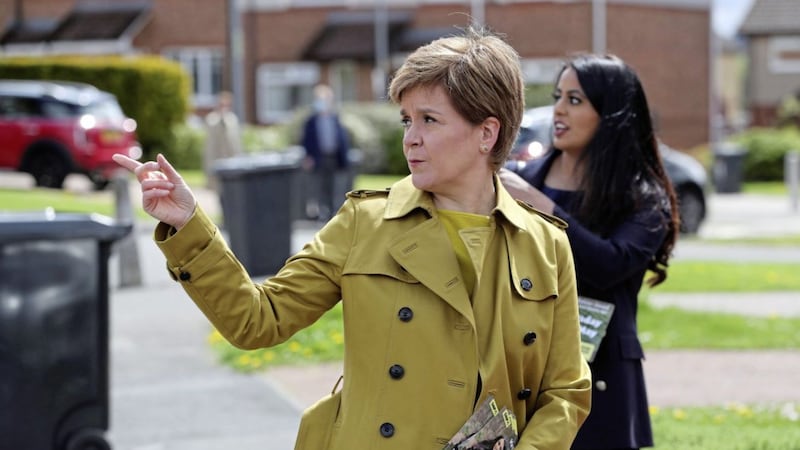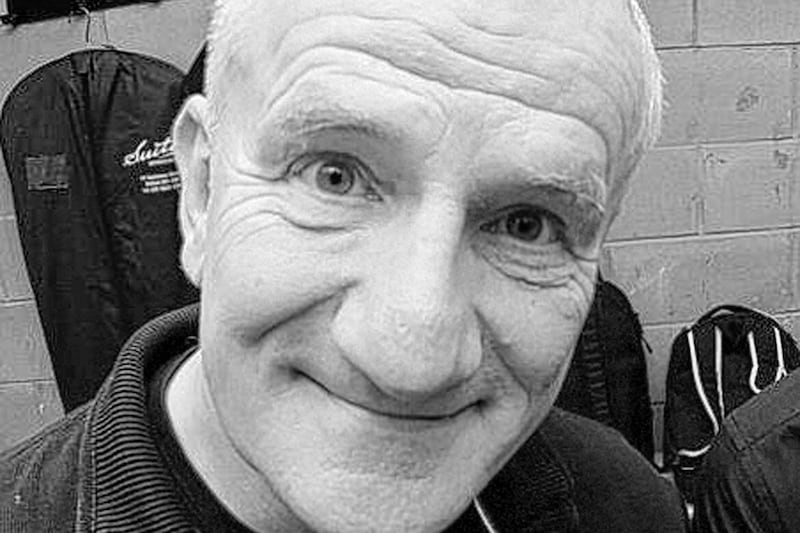I HAVE a suspicion that historians will look back on May 6 2021 as the day the United Kingdom began to unravel. The emphatic victory of Nicola Sturgeon's SNP party has, in her words, made another Scottish independence referendum "a matter of when – not if".
Although Boris Johnson may succeed in delaying that reality, by arguing the country must concentrate on recovery from the pandemic, there is now a real likelihood of the secession of Scotland from the UK.
The Scottish electorate neither forgot nor forgave the scare stories peddled by the No campaign during the 2014 independence referendum, falsehoods such as ‘Vote No to keep Scotland in the EU' and 'Vote No to protect Scotland's NHS'. Five years later, both claims ring hollow, with Scotland dragged out of Europe and the NHS struggling to deal with the pandemic, its staff overworked and underpaid.
Pro-union former prime minister Gordon Brown has inserted himself into the debate, as he did days before the 2014 referendum. Launching a new campaign to keep Scotland in the UK, he criticised what he describes as Boris Johnson’s "muscular unionism", involving "putting up more flags, and labelling UK-financed bridges and roads as gifts from the UK".
What Brown labels ‘muscular unionism' has, of course, been the norm in Northern Ireland since its inception.
In contrast to Scotland, where falsehoods during the 2014 referendum have resulted in a resurgence in support for independence, the reaction of unionism here to the same falsehoods has been a renewed enthusiasm for the union.
I half-joked last week that the next unionist leader to leave office should turn off Northern Ireland's lights on their way out. With schisms deepening within the DUP, an opportunity for the UUP to take advantage was squandered when its leader also decided to jump ship, or – considering Steve Aiken was previously a submarine captain – maybe, 'periscope down, dive, dive, dive' would be a more appropriate phrase.
The UUP has a history of being led by nice military chaps; I'm old enough to remember Captain O'Neill. For some, the changing of the UUP guard from Steve Aiken to Doug Beattie is seen as Captain Pugwash being replaced by Captain Mainwaring. That would be unfair, as Beattie has been a star performer for his party, both in the assembly and media. He was recently at the forefront in proposing legislation to ban conversion therapy here, speaking with passion and eloquence against the discredited and damaging practice.
Nor is he afraid to address the scourge of loyalist paramilitaries. His description of them as "drug dealers, thieves and the absolute dregs of our society" brought an immediate reaction from David Campbell, chairman of the Loyalist Communities Council, which purports to represent the UVF, UDA and Red Hand Commando.
Mr Campbell accused Beattie of using "anti-loyalist rhetoric" and said his comments ran the risk of "alienating at least a third of [the unionist] electorate". How Campbell came up with that figure is anyone's guess, though if he wishes to prove his assumption, instead of picking figures out of the air, he could stand at the next election – a challenge I doubt he'll accept.
* * *
I'D NEVER heard of Barbara J Pym until the sacking of Sunday Independent columnist Eoghan Harris, likely due to my policy of blocking all anonymous accounts from my social media. Somewhere, among the hundreds of other blocked accounts, ‘she’ may languish, having fallen foul of my thin-skinned propensity to hit the 'block' button.
Mr Harris – along with others still unknown – hid behind the anonymity of the Barbara J Pym account to attack both Sinn Féin and anyone they viewed as fellow travellers. That Harris attempted to justify his behaviour in a subsequent radio interview with RTÉ's Sarah McInerney – a victim of BJ Pym – was both breathtakingly arrogant and stupid.
In a consummate demonstration of controlled journalism, McInerney calmly dismantled his self-serving attempts at justification. In one exchange, Harris stated that no other journalists were involved – something few believe – saying: “There's quite an extraordinary number of, I suppose, businesspeople on it." McInerney interjected. “You say an extraordinary number? I thought you said only six people were involved?” Harris replied: “About six people, yeah."
Harris's cohorts must realise it's only a matter of time until they’re exposed as the cowards and bullies who hide in online anonymity, spewing misinformation and half-truths to discredit their victims. I hope they spend many sleepless nights until the rock under which they're hiding is lifted.









